Depending on who you talk to, 2006 was either a very good year
for aviation, or a year of much foreboding.

 This was a year... in which
general aviation continued to make much progress, but saw the
specter of user fees threatening it at every corner.
This was a year... in which
general aviation continued to make much progress, but saw the
specter of user fees threatening it at every corner.
This was a year... in which the F-22 and the
F-35 flew, but the reality of budget tightening threatened both
programs.
This was a year... in which the Airlines made
progress, slow though it may be, from the brink of bankruptcy to
the brink of profitability -- however at the cost of their
employees, stockholders, and the trust of the American public.
This was a year... in which business aviation
continued to thrive, but also a year in which it continued to take
flak from a media that didn't understand it, an FAA that didn't
value it, and the airlines who covet their prosperity.
This was a year... actually a great year for
sport aviation, as the sport pilot community saw blue skies for the
first time in a long while, and new airplanes filled the sky at a
rapidly increasing rate... but the costs of entry into the LSA
community still seems to be way too much for the average Joe to
handle.
This was a year... in which the space shuttle
got back to business, the commercial spaceflight industry made
incremental progress, and plans for the future on both sides of the
aisle moved forward... but to all intents and purposes the progress
has been marginal, and far less than what people expected by
now.
So, okay... 2006 was a mixed bag and it's bloody hard to
determine which stories or story topics truly line up at the top of
a list that we've decided to limit to a solid dozen entities --
presented in quasi-alphabetical order. But warts and all, this is
what we've come up with -- the stories that made a splash in 2006
-- while also containing some promise (good and bad) for the
future. Read them, think about them, and let us know what YOU
think.
TSA Stupidity Knows No Bounds
Okay, we know this is hardly a tough topic to document -- kinda
like shooting fish in a... well, you get the idea.
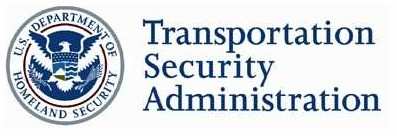
However; the stories of TSA abuse and stupidity are seemingly
without limit. This nation has learned to put up with all kinds of
abysmal behaviors that seem to do little to protect our nation's
security, but do seem designed more to look good than to accomplish
anything. While security induced hassles are keeping passengers
away from airplanes, and many more to miss their flights, the
TSA continues to abuse the public trust by failing to address the
root causes of our security vulnerabilities by putting up
feel-good, public Band-Aids that fool no one.

There are a number of simple steps that need to be taken to
secure ourselves, as unpopular as they may be, but singling out
grandmothers in wheelchairs, or elderly medal of honor winners, or
persons who obviously don't meet the terrorist profile (like the
four-year-old who wouldn't give up his juice bar), seems more than
ridiculous. And while we're not specifically advocating what most
consider to be racial profiling, there is no question that the
threats we face do seem to come from a section of our world's
society that can be easily identified, and should necessarily
be given a bit more scrutiny than the average Joe.

As someone who has to walk through way too many TSA checkpoints,
I am amazed at what is ignored, as well as the (often)
less-than-professional behavior I see from the TSA. Many
of these personnel do not seem qualified to be
entrusted with such grave responsibilities -- and they do not have
the right to heap abuse on the public. If you so much as
question any TSA staffer about their conduct or procedures, no
matter the justification, you're in for quite a trip -- possibly
all the way to jail. I personally had to deal with questioning by
an annoyed police officer after watching an unkempt TSA staffer
fumble through some of my expensive camera gear --
who nearly dropped an $8000 camera (which only survived
because I caught it). He ignored my instructions to be careful and
became quite annoyed when I asked to speak to his supervisor...
which he refused... calling the cops instead when I made it clear
that a complaint was to be made. When the situation was revealed
for what it was (I invited the officer to view the video record
kept of such proceedings--which he said was not necessary after the
TSA staffer changed his story three times), the officer
became nearly as annoyed as I was, while also noting that
he was as sick of watching the TSA use law enforcement as a crutch
for their own egos as I was.

Believe it or not, I think there is help for this mess -- a lot
of help. This nation has a precious brain trust in the form of the
hundreds of thousands of men and women, throughout the years, that
have served this nation and their communities in a law enforcement
role and developed the kind of insight and instincts that are
sorely needed by TSA. Why the TSA is not seeking out former beat
cops, retired detectives, and other available law enforcement
professionals to provide needed guidance for an often young and
inexperienced staff is beyond me. Simple but proper inspections do
not have to be complicated. They rarely have to rely upon expensive
equipment. And, it is common sense that a dozing four-year-old in
his Mother's arms poses less of a threat than the middle eastern
male who is acting nervously. But, unfortunately, the fear of being
accused of racial profiling is one of the few things that TSA
staffers fear... and as a result the scrutiny that some people need
to be given is often abandoned as too risky to pursue. No one is
suggesting that we aggressively profile anyone without reason...
but we should not be afraid to include anyone who fits the
demographics of those who have committed terrorist acts in the
past.

The overall effect of the current dilemma is that this nation's
TSA is looked upon as a clueless gathering of Keystone Cops. ANN is
filled with stories of TSA abuses, the general media has far more
than we do, and we believe it is time for a complete and thorough
overhaul of the entire TSA apparatus. We can start by using
experienced streetwise law enforcement oversight to replace or
train staffers that often seem unqualified for TSA jobs, much less
the fast food positions too many of them seem to have come
from.

TSA does not work. TSA is a joke. TSA is one of the few outside
reasons that the airlines can legitimately blame for some of their
troubles. There is precious little reason for the amateur efforts
of the TSA to be put up with, by the flying public, any longer. If
this nation's transportation infrastructure is to make any progress
in 2007, and if the airline industry hopes to survive its many
self-induced and outwardly induced problems, a thorough and
aggressive overhaul of the TSA would be a damned good start.
UAVs Everywhere!
Boy... here's a truly fascinating topic. On one hand, ANN cannot
help but be thoroughly impressed by the technological progress made
by the unmanned air vehicle development community. Proving
themselves time and time again in intelligence roles for this
country's military and security networks, the modern UAV has become
a versatile defender of democracy. They've even proven themselves
to be an agile weapon system when properly equipped and operated by
this nation's military. Numerous personnel, overseas, owe their
lives to UAVs, and a number of great victories over terrorist
interests have been accomplished by skilled use of a new
generation of UCAV's that have been guided to targets -- often by
sophisticated UAV surveillance programs. On a strictly military and
security level, UAVs offer this nation a nearly painless way to
protect ourselves, our personnel, and our interests around the
world.
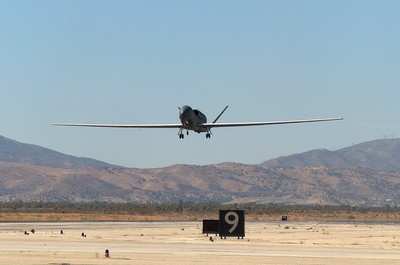
But... then there's this other problem. As UAVs have counted
up amazing successes overseas, and the technological progress
posted by this community seems to know no bounds, UAVs are being
tapped for a number of domestic roles. Border patrol chores seem to
be the first area of concentration for domestic UAV surveillance
programs, and outwardly such programs make perfect sense. However;
for all the technological progress these vehicles have made, and
with all the amazing talents that their operators bring to the
fore, there is still no sensible strategy for identifying these
aircraft and seamlessly allowing them to operate in the same
airspace as manned vehicles, be they 747s, or J-3s. This is an
accident waiting to happen.
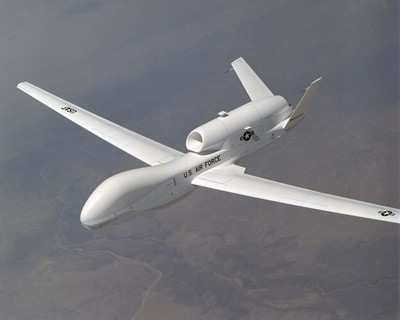
ANN agrees that UAVs have a phenomenal future both overseas as
military and security defense systems, even domestically, to
protect our borders and in a number of other special uses... but at
no time should a UAV be operated in such a way as to endanger any
manned vehicle -- nor should a UAV, except in circumstances
involving dire emergencies, take precedence over the need
of manned transportation systems to be able to utilize our
nation's skies as needed... no matter the type of use, whether it
be professional or recreational. One of the true tenets of American
democracy is seen and celebrated every time a private citizen jumps
into their plane to take flight, and we cannot, and should not,
surrender those freedoms because somebody's got a new toy that they
have not adequately prepared for use in the national airspace
system.
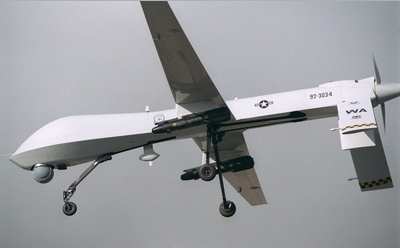
There are tremendously talented people involved in the
regulatory environment and working within the UAV community, who
assure us that UAVs can be used on a limited basis, domestically,
without any threat to civilian or military air traffic. We tend to
believe that but the rush to deploy UAVs, willy-nilly, in
order to grab some attention and try to do a job for which they're
not fully prepared, seems shortsighted and premature.
User Fees/Airlines Attack The Rest of Aviation
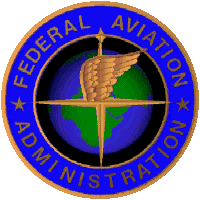 If there is a more pressing issue
for 2007 than the fraudulent issues put forth by the FAA in the
form of user fee proposals (in seeming partnership with the airline
industry), I don't know what is. The FAA has done a poor job of
validating their need to abandon a workable and still-functioning
funding mechanism, that not only is paying the bills today, but is
showing plenty of evidence that it can do so in the future. The
airlines, in turn, have done a very bad job of disguising their
intensive support for FAA's user fee proposals through their greed,
arrogance, and self-interest.
If there is a more pressing issue
for 2007 than the fraudulent issues put forth by the FAA in the
form of user fee proposals (in seeming partnership with the airline
industry), I don't know what is. The FAA has done a poor job of
validating their need to abandon a workable and still-functioning
funding mechanism, that not only is paying the bills today, but is
showing plenty of evidence that it can do so in the future. The
airlines, in turn, have done a very bad job of disguising their
intensive support for FAA's user fee proposals through their greed,
arrogance, and self-interest.
These are the facts... the FAA does not need a new funding
mechanism -- it needs to spend its money more effectively and
carefully. Nearly as important; the FAA does not need a new funding
mechanism that has the potential to create complex new levels of
bureaucracy, confusion, and expense. The FAA and the airlines,
although they may deny it, appear to be working in concert to
produce a united front in order to sell the public and our
legislators on the need for changes that, so far, make no sense at
all.
Far more learned persons than the staff at ANN have made
compelling and well-documented arguments for why user fees make no
sense, why the FAA's arguments are fallacious, and why the airlines
are acting in a penny wise and pound foolish manner. We've done
those stories... and we'll keep doing those stories... but
preaching to the choir is not the way that we are going to
defeat upcoming user fee proposals. The entire aviation
community has to band together in ways it has not done, in many
years, and it needs provides solid logical arguments to refute
those that are being put forth by the airlines and the FAA. In the
meantime; the airlines themselves are going to have to learn that
alienating the rest of the aviation industry has a cost.
 I have made it personally clear,
when conversing with airlines sources, via conversation, mail and
e-mail, that the actions of the ATA (the airline's vociferous and
somewhat bombastic trade association) not only do not have my
personal support but are likely to cause me to find ways to abandon
airline use whereever possible. I have also made it clear that I
have heard from thousands of ANN readers throughout the last year
that think likewise. It's time that more people said these things,
and it's time that the appropriate aero-organizations put forth
such concepts. More important than anything else; the airlines have
to be educated to the fact that there is going to be a cost for
their arrogance and alienation -- not only by the rest of the
aviation industry, but by a critical type of customer those who
have heretofore has been some of their best friends, and
staunchest allies.
I have made it personally clear,
when conversing with airlines sources, via conversation, mail and
e-mail, that the actions of the ATA (the airline's vociferous and
somewhat bombastic trade association) not only do not have my
personal support but are likely to cause me to find ways to abandon
airline use whereever possible. I have also made it clear that I
have heard from thousands of ANN readers throughout the last year
that think likewise. It's time that more people said these things,
and it's time that the appropriate aero-organizations put forth
such concepts. More important than anything else; the airlines have
to be educated to the fact that there is going to be a cost for
their arrogance and alienation -- not only by the rest of the
aviation industry, but by a critical type of customer those who
have heretofore has been some of their best friends, and
staunchest allies.
The non-airline-affilated aviation industry, no matter what
segment they represent, needs to publicly and positively broadcast
a message of support for the defeat of user fees, and the return of
fairness and sensibility to the way that the FAA deals with the
entire aviation industry -- instead of just their buddies in the
airlines. For God's sakes, folks, let's not let the Federal
Aviation Administration get turned into the Federal Airline
Administration.
VLJ Wars
We've used the word "war" to describe the conditions surrounding
a number of the problems that we faced in 2006. And while we risk
the danger of over-using the word, we believe that it plays such a
descriptive role in chronicling the issues of the year, that we're
forced to rely upon it yet again.
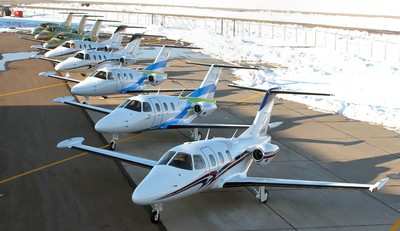
This is another case in which the word seems apt. However, you
may not realize just where the conflicts are when it comes to the
burgeoning VLJ market. Recently; we've seen the term 'VLJ war' used
to typify the competitive atmosphere that exists between Eclipse,
Adam, Cessna, Diamond, Cirrus, Piper, Embraer and a number of other
companies that either are already producing products for the Light
Jet, Very Light Jet or Personal Jet market -- or soon will
be...
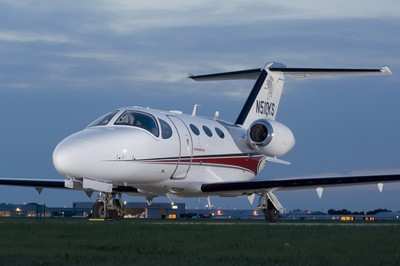
We think that the true upcoming VLJ conflicts will not result
from the competitive pressures noted above, but in how these
revolutionary aircraft are going to be treated and accepted by an
industry that (at one time) seemed to welcome these birds with
open arms. Lately; they've been painted, by both FAA and
Airline hype, as unrepentant thieves of our airspace, resources,
and airports.
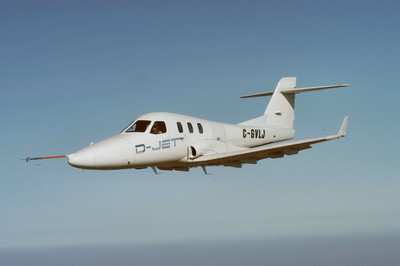
Boy, what a load of bat guano... Light Jets, Very Light Jets,
and Personal Jets -- whether they be used for recreational or
professional purposes, are going to be some of the greatest boons
to American business that we have seen in many years. The
National Business Aircraft Association can tell you that the
average business jet, something that most smaller companies could
not afford before now, has been a tool that has been used quite
effectively to make Biz-Jet equipped companies more competitive,
more mobile, and far better business entities.
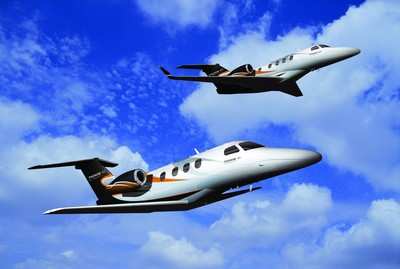
When the business power that has heretofore been leveraged by
$10-$50M business jets starts being leveraged by companies that can
afford $1M-$2M for smaller jets with (at least) 75% or more of
those bigger jet's basic capabilities, we're going to see some very
impressive business results. Katy, bar the door...
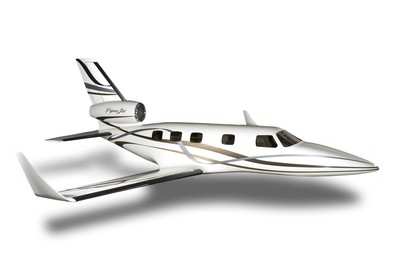
At least, we THINK we're going to see some very serious business
results, that is... if the baby is not thrown out with the
bathwater by enemies of the VLJ community. The FAA's insistence on
new funding mechanisms, and the demonization of VLJs as potential
spoilers or bad boys that will be robbing the FAA of their
resources, is not only a misnomer, it's pure and utter dreck. The
Airline Industry's attacks on VLJs are not only self-serving,
but foolish -- to the extreme. No segment of the private and
business travel industry is as convinced of the viability and value
of commercial air travel as people who fly and own airplanes. Yes,
while they tend to fly their own airplanes wherever possible, these
are very mobile people who often own very mobile companies --
staffed by very mobile users who have no problem using the airlines
where it suits their needs. They comprise a valuable customer base
that the airlines are alienating with each passing day and frankly,
really starting to "piss them off" with all the anti-GA rhetoric
(the quoted comment having been derived from a conversation with a
pilot who runs a very mobile Fortune 500 company, by the way).
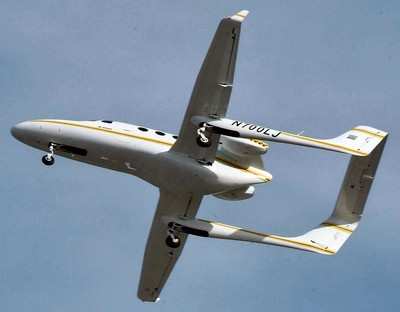
So... the REAL VLJ war will have little to do with competition
among competing VLJ builders... it will, instead, revolve around
whether or not VLJs, their owners, and their pilots are going to
run into resistance from self-interested government agencies and
much-more-self interested airline industries. It is conceivable
that these counter-interests could strangle a burgeoning new
segment of aviation one that has extraordinary promise for
this nation's business future.
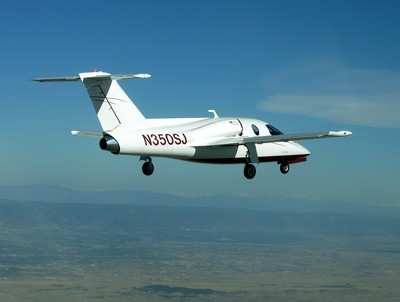
If the user fee issue and airline antagonism toward GA grows
throughout 2007, it behooves every participant
in aviation -- every user, every pilot, every company, every
organization -- to set the record straight and to make sure that
all segments of aviation get equal access to our airspace and
airports without paying for things that they don't need, never
wanted, or have been thrust upon them by those looking to pass the
buck. The VLJ community may be the first heads on the chopping
block if those anti-GA interests have their way... mark our
words.
 A Crazy Tesla Flying Car is Coming
A Crazy Tesla Flying Car is Coming ANN's Daily Aero-Term (11.xx.25): NonApproach Control Tower
ANN's Daily Aero-Term (11.xx.25): NonApproach Control Tower Aero-News: Quote of the Day (11.01.25)
Aero-News: Quote of the Day (11.01.25) ANN's Daily Aero-Linx (11.01.25)
ANN's Daily Aero-Linx (11.01.25) Classic Aero-TV: EAA Introduces Angle of Attack Training
Classic Aero-TV: EAA Introduces Angle of Attack Training






















